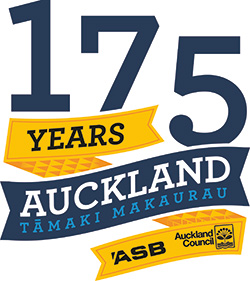The bank continues its support of community assets with contributions, often involving sponsorship and naming rights, to Auckland assets such as the ASB Showgrounds, the ASB Aotea Centre Theatre and the ASB Stadium. It is now naming rights sponsor and principal private contributor to the $35 million ASB Waterfront Theatre being built at the Wynyard Quarter.
But all that was threatened in 1867 when the Government (having ignored Auckland's requests for a savings bank to begin with) saw what was being achieved and began moves to introduce the Post Office Savings Bank (POSB) as a means to taking over.
They were targeted by one of New Zealand's most influential politicians, first Treasurer and then Premier, Julius Vogel. New Zealand needed capital during the 1870s and borrowed overseas - but the funds being gathered at home by the nation's savings banks were tempting.
Sir Julius Vogel. Photo / Alexander Turnbull Library
A private member's bill was introduced to Parliament in 1870, supported by Vogel, to take over the savings banks, compelling them to surrender to the POSB. The move was eventually thwarted, with Vogel acknowledging it would have been unpopular with the electorate - but not before two banks (Wellington and Lyttelton) were absorbed by the POSB.
What saved the ASB was the electorate's strong regard for savings banks.
The first savings bank was established by the Rev Henry Duncan in Ruthwell, Scotland, in a move to do something of real and lasting value for the under-privileged. A philanthropist, Duncan believed deeply in the dignity of the ordinary working man and wanted a dignified alternative to poor relief.
In 1810, Duncan opened the first savings bank, based on paying interest on investors' modest savings. At that time banks required 10 to open an account but in Ruthwell, sixpence was enough. The deposits were co-operatively owned and surplus funds used for community projects and depositors' long-term savings schemes.
The world's first "people's bank" quickly gained popularity. In that first year, despite widespread poverty, total savings amounted to 151. Within five years there were savings banks throughout the United Kingdom, spreading to Europe and the United States. Ten years later Britain's total savings reached more than 3 million.
In 1847, the ASB opened its doors to a resounding silence. No one deposited any money for two weeks before a man called Matthew Fleming deposited a whole 10. The two men who banked that deposit were said to have shouted with glee: "The bank exists!" At the end of the year 21 depositors (14 Pakeha and 7 Maori) had deposited 216 and withdrawn 50 - leaving a balance of 166, hardly a fortune from a population that exceeded 5000.
The bank's beginnings were fuelled by much the same altruism as had stimulated Duncan's bank in Scotland; it had a community-focused philosophy offering banking services and housing loans for middle- and lower-income people. By the early 1860s, as Auckland's population climbed over 10,000, the ASB had 900 customers with deposits in the region of 29,000. By 1900, transactions exceeded 1 million.

